Anne Marie interviewed Nicole Perlman, the screenwriter of Guardians of the Galaxy which opens this weekend
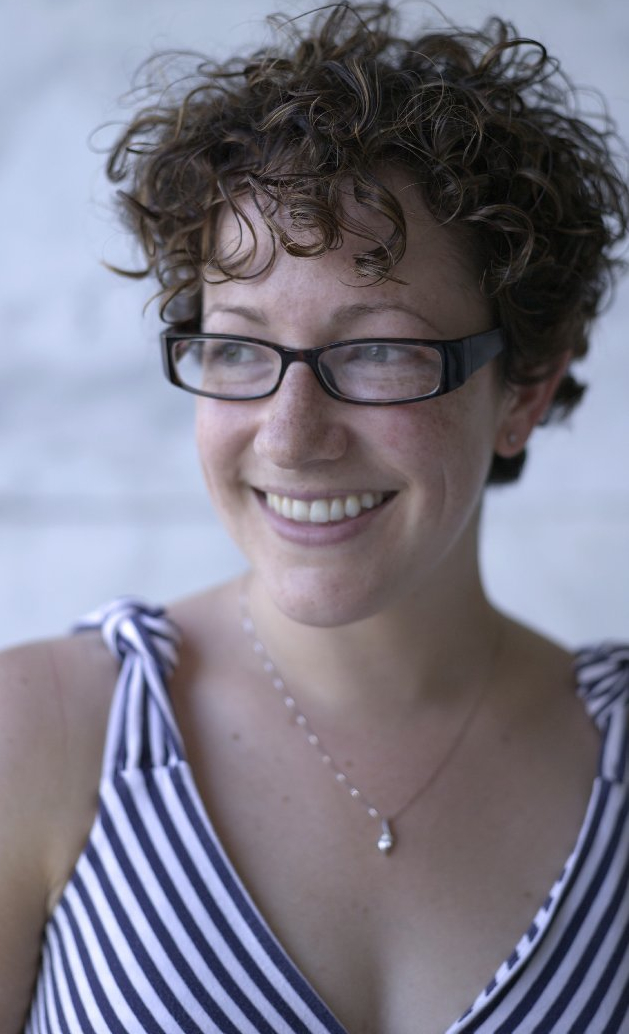 Nicole Perlman, Screenwriter"Nicole Perlman" has been a name shrouded in mystery since Marvel announced Guardians of the Galaxy two years ago. Though the screenwriter has received awards for her writing, Guardians will be her first official screen credit. (She shares co-screenwriting credit with Guardians director James Gunn). I sat down with her over the weekend at Comic Con to learn a little more about the woman who turned Guardians of the Galaxy from cult comic hit to Marvel's biggest blockbuster experiment. We talked about Guardians, her new project with Cirque du Soleil, and how screenwriters make terrible movie audiences.
Nicole Perlman, Screenwriter"Nicole Perlman" has been a name shrouded in mystery since Marvel announced Guardians of the Galaxy two years ago. Though the screenwriter has received awards for her writing, Guardians will be her first official screen credit. (She shares co-screenwriting credit with Guardians director James Gunn). I sat down with her over the weekend at Comic Con to learn a little more about the woman who turned Guardians of the Galaxy from cult comic hit to Marvel's biggest blockbuster experiment. We talked about Guardians, her new project with Cirque du Soleil, and how screenwriters make terrible movie audiences.
ANNE MARIE: You started with getting your Challenger screenplay on the Black List, which is really cool, and then did a complete jump into Marvel. Tell me about that!
NICOLE PERLMAN: I had moved to Los Angeles after Challenger. It was on the Black List, it won the Tribecca Grant for Science and Film, and I was getting a lot of science-related screenplay projects, which was great, and I love science-related stuff. So I was happy about it.
I did a Neil Armstrong biopic for Universal, and I was doing things in that realm. And I would go out and pitch on projects that were science fiction or action and I got a little push back about it. I got, 'This doesn't seem like your genre, or your world.' There was a little bit of that like 'This is a really masculine movie. We don't know if you could handle it.' And I'm like, 'But you thought I could handle it enough that I could pitch on it, so that's interesting.' But it was mostly a feeling of [having a] question mark, of could I handle something like that.
When I was having a general meeting with Marvel Studios, they mentioned they had a writers program, and they wanted to know if I wanted to be a part of it. And of course I leapt at the chance, I wanted that stamp on my resume. And I also wanted to show that like I could do the fun big action movies that I loved, and the science fiction movies. And it worked out really well, so thank goodness!
Yeah, clearly! The President of Marvel has stated he never thought of Guardians of the Galaxy as movie material until he read your stuff.
Oh that's nice! That's really lovely.
So what made you choose Guardians out of all of the list of options for projects?
[more...]
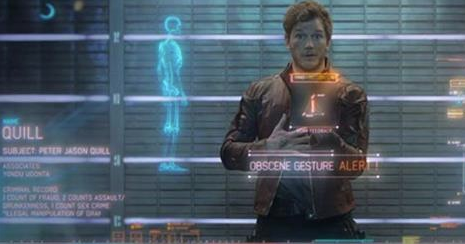
NICOLE PERLMAN: Well, so there were about a dozen things that they had on this list of projects they were thinking of developing, or they weren't sure. You know question mark properties and lesser known properties. And I chose Guardians because it was the most science fiction out of all the names on that list, and also was a really fun entryway into Cosmic Marvel, that whole world of different species and spaceships. And I wanted to go play in that world. And so there was that, and then also the 2008 reboot of the Guardians comic books was incredibly funny and sarcastic. And so that drew me as well. So those were the reasons. However, there were much better-known properties on that list, and my friends thought I was nuts for choosing the one with the talking raccoon. [Laughs]
ANNE MARIE: Did you go back and read the 2008 and the original 70's runs?
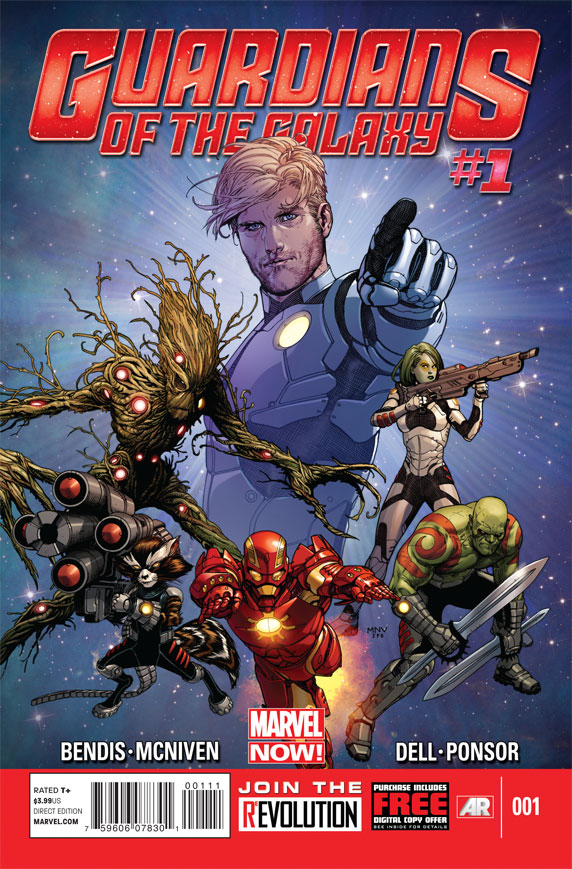 I read everything. I read everything I could get my hands on. The first eight weeks that I worked for Marvel, all I did was read comic books. I brought home stacks and stacks of comic books every night, and that was my life. And it was great! [Laughs]
I read everything. I read everything I could get my hands on. The first eight weeks that I worked for Marvel, all I did was read comic books. I brought home stacks and stacks of comic books every night, and that was my life. And it was great! [Laughs]
Oh darn! [Laughs]
I know! My friends were very jealous, and my husband was like, "Damnit!"
The Marvel Universe version takes off a little bit differently from '08 or the '70s version?
It does. And we rebooted... we rebooted a few things from the comic books. It's definitely not a literal adaptation whatsoever. One of the things we rebooted was Peter Quill's backstory. That was partially because we wanted to have a main character who was already comfortable in space, who wasn't like, "Oh, an alien! Oh my gosh, what's going on? Wow! I can fly! Anti-gravity!"
[Laughs]
Instead we had someone who was already in space for a long time, but who was relatable, and had come from Earth. And so that is why I had him bring toys and music from his childhood with him when he gets kidnapped off Earth. So it's, uh, a little of both worlds. And y'know if we had done the original character, Star Lord/Peter Quill from the comic books, he's an astronaut who encounters a celestial being while he's in orbit and it just would have been a whole different thing.
So did you ever run into problems where you started writing something in the script and they were like, 'No no, we're not using that in the Marvel Universe yet.'
[Laughs] Well, I checked. There were a couple things. Thanos was a bigger character for me. He was really much more involved in my drafts because who wouldn't want to use Thanos? And they let me use anybody I wanted to who they had the rights to. I was allowed to use anyone in Cosmic Marvel and for most of the time I was allowed to. And then there was a sense of 'OK, we're going to do this. We're going to go explore Cosmic Marvel.' And we, as part of our growing out phases, we need to save Thanos. So he's still in it, he's just got a less prominent role.
Right. Don't roll out the Infinity Gauntlet yet. Save it for later.
Exactly, yes.
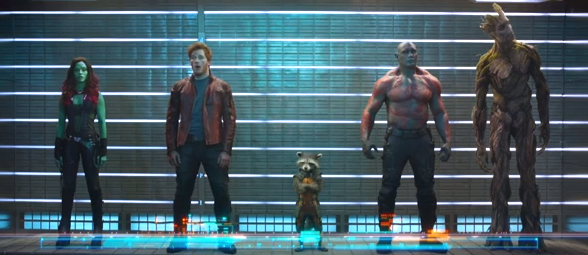
So a lot of the stuff that you do, and that you did for Marvel is adaptation. Do you find a big difference working on an adaptation versus working on original work?
Yes. It's interesting. It depends on whether the project or life story is very well known or not. I would say, y'know the plus side of writing original things is that you can do whatever you want. The downside is that you can do whatever you want. Sometimes it's nice to have boundaries. Sometimes it's nice to know where the general arc of your story has to be no matter what. And I think that that can be a really good writing exercise. I had a friend who said that the best writing she's ever done has been from exercises where her teacher told her, "You can't use the letter 'e!''' [Laughs] You know? She's writing poems, and she can't use the letter 'e.' And sometimes having these externally imposed limitations can lead to great things... but I love the underlying source material or I'd never want to adapt it.
Having access to all that research must be so fun!
So much! [Laughs] It was really fun.
Which do you enjoy more, the actual writing or the researching part?
Ooo, good question! I enjoy having written!
[Laughs]
I think most writers agree that the actual writing is painful. But I love having written.
Is there a huge difference between working with Marvel, where it was just kind of like "put you in the playground and play in the sandbox" versus Cirque du Soleil?
Well Cirque is actually, I mean they're not similar, but they're both very different from what is the usual experience of writing movies in Hollywood. So Cirque is different in its own way. They're fantastic. Wonderful people. And Marvel's also different in its own way, because I was in this program and had endless amounts of time to develop one project, and that is not a usual scenario.
They're both really visual, too.
Yes! Yeah, I love that. Cirque is extremely visual, extremely colorful, and they're respectful of mystery and enigma, and the process, and they're just really fun people! And they do things their own way and it works.
So when you're watching a movie, are you able to turn off the screenwriter part of your brain and fan out about it, or are you like, "I see what you were planning there, but..."
[Laughs] My friends hate watching movies with me, because I'll be like, "We're 22 minutes in, something's going to happen." You know? "Oh! Second act reversal! It's coming. Prepare for it!' And they're like "Shut. Up." But I do have trouble sometimes not thinking about it. And sometimes I like to be aware of it. On some movies I turn on the subtitles. While I'm watching TV I'll turn on the English subtitles on so I can be more aware of the dialogue while I'm watching it. But when I'm watching movies just for fun, I like to try and turn that writer off.
Do you consider it research? Can you write it off as research?
[Laughs] I can! I do, I write it off completely. I love it. I can write off all sorts of weird things. Don't tell the IRS.
[Laughs] Yeah! Those DVDs you see are totally research!
Totally research! 100% research! [Laughs] It's great.
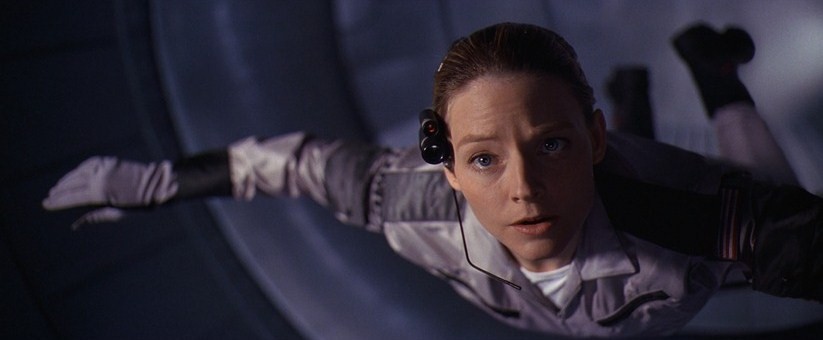
So, when you're screenwriting, do you have specific influences that you look to?
I would say it depends on the genre. You know, in science I love Contact. Contact is one of my favorite movies. For Cirque du Soleil, Labyrinth, Dark City, these really visual, cool, interesting movies. But whatever project I'm working on, I like to watch as many things in that genre as I can to know what's been done before, but also just get a sense for the tone, what's working, and what's not working. It's fun to sort of expose myself to different things.
I just watched this really trippy movie, Enter the Void, which is like WHOA! That movie was a trip! Afterwards I was shaky, y'know? I needed to really calm down after that.
I do think it's interesting that we keep talking about all of these visual movies, though, because visual isn't usually something you associate with when you're talking to screenwriters. It's usually about much more about the written word. How do you translate the visuals to the page?
Well, I think it's part of the writing, and giving a sense of scale, a sense of tone, a sense of scope. With Cirque I actually got an artist friend of mine to do mockups of various characters and scenes, 'cause they were so out there, they were so stylistic, that I wanted Cirque to know exactly what I was going for. But usually I don't, I don't have an artist helping me. I just try to get it done with the written word. But honestly, screenwriting is a very visual medium. I went originally to school to be a playwright, and I realized that I wanted to tell a story more visually than dialogue-driven, and that's one of the reasons I went into screenwriting.
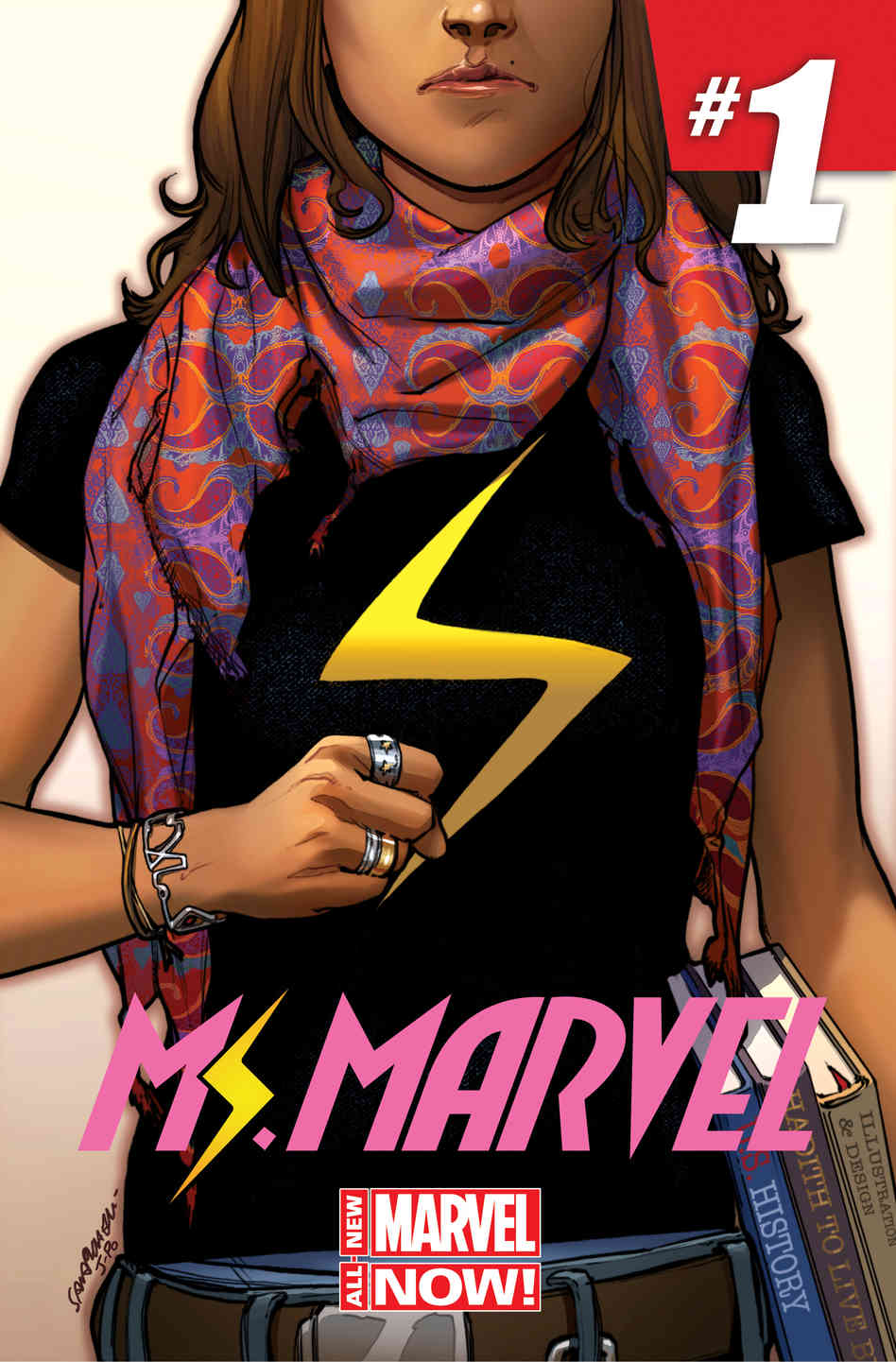 So I did want to talk to you about this: scifi as a genre and filmmaking in general aren't always known to be particularly kind to women, especially women trying to work in the field.
So I did want to talk to you about this: scifi as a genre and filmmaking in general aren't always known to be particularly kind to women, especially women trying to work in the field.
Um, I would say that there are a lot more women in science fiction in television, and there are women in comic books. My friend G. Willow Wilson just rebooted Ms. Marvel as a teenage Muslim girl.
Which is so good.
So good! So good! Fantastic. And I think that those mediums are a little bit more genderblind than film is. But I think the more women we get that are writing and directing in science fiction and film, the less of an issue it's going to be. The less it's going to be noteworthy. And I look forward to that day. I look forward to it not being a big deal.

previous interviews | more from Comic Con